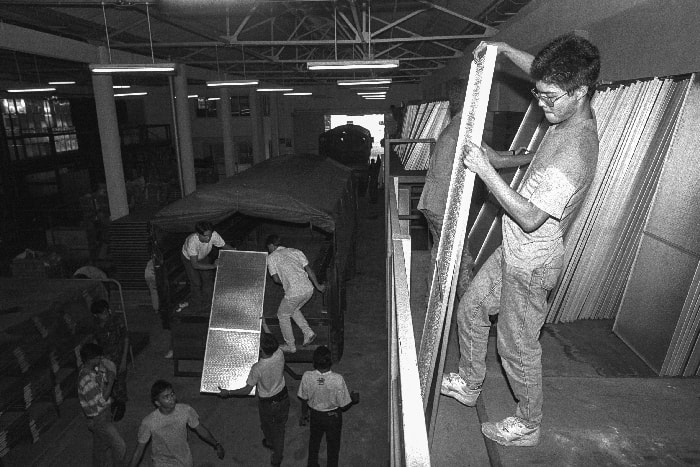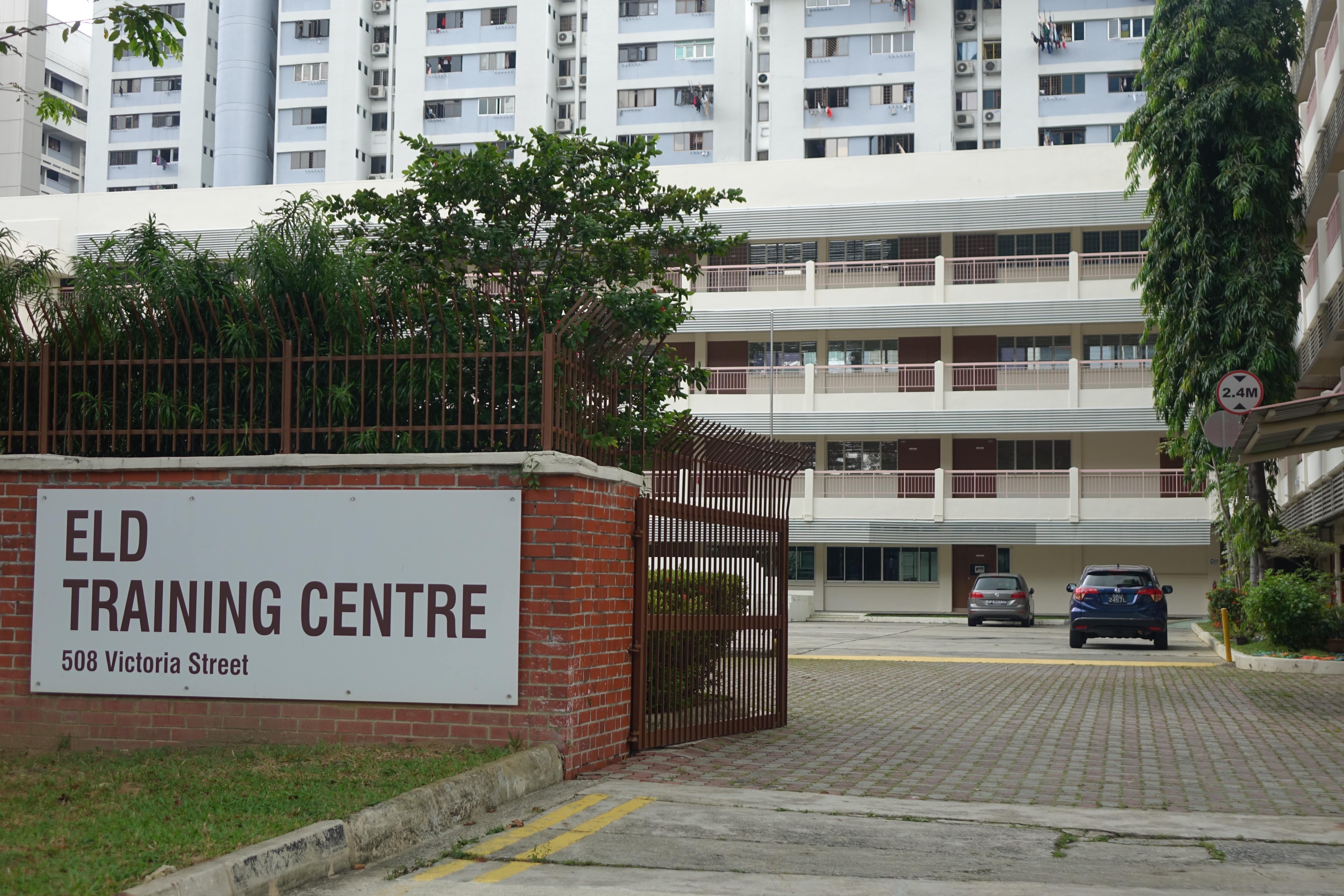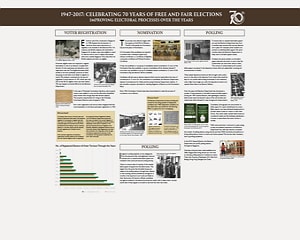Readiness Preparation Between Elections
One myth about the Elections Department is that it lies dormant between elections. Nothing can be further from the truth. The Elections Department works constantly to ensure that Registers of Electors are updated. At the same time, the Elections Department is responsible for the appointment and training of election officials, planning for electoral premises and efficient management of logistics to ensure operational readiness when elections are called.

Ministry of Information and the Arts Collection, courtesy of National Archives of Singapore
Workers inspecting polling booths and election equipment after an election to ensure functionality.
The Elections Department, which used to operate on the basis that it should ready all its officers 'just in time' for an election, has since adopted the maxim that it should be ready 'all the time'. In the past, election officials were trained just when elections were round the corner. Now, they receive elections training throughout the year. The Department also set up the Group Assistant Returning Officer (GARO) Contingent system for effective command and control of election operations. Senior public officers are appointed as GAROs to oversee polling and counting operations in constituencies under their charge.

Elections Department Training Centre where election officials are trained in preparation of the elections, 2017.
The Elections Department also undertakes reviews of the electoral processes after each major election, together with its partner agencies to find ways to improve the system and processes, including proposing legislative changes. One innovation that the Elections Department implemented in 2020 is eRegistration of voters. Instead of requiring an election official to manually search for and strike off the voter's name in the hard-copy Registers of Electors, voters only need to scan their NRIC electronically to register, thereby shortening the waiting time for voters and reducing election manpower at the polling stations.

